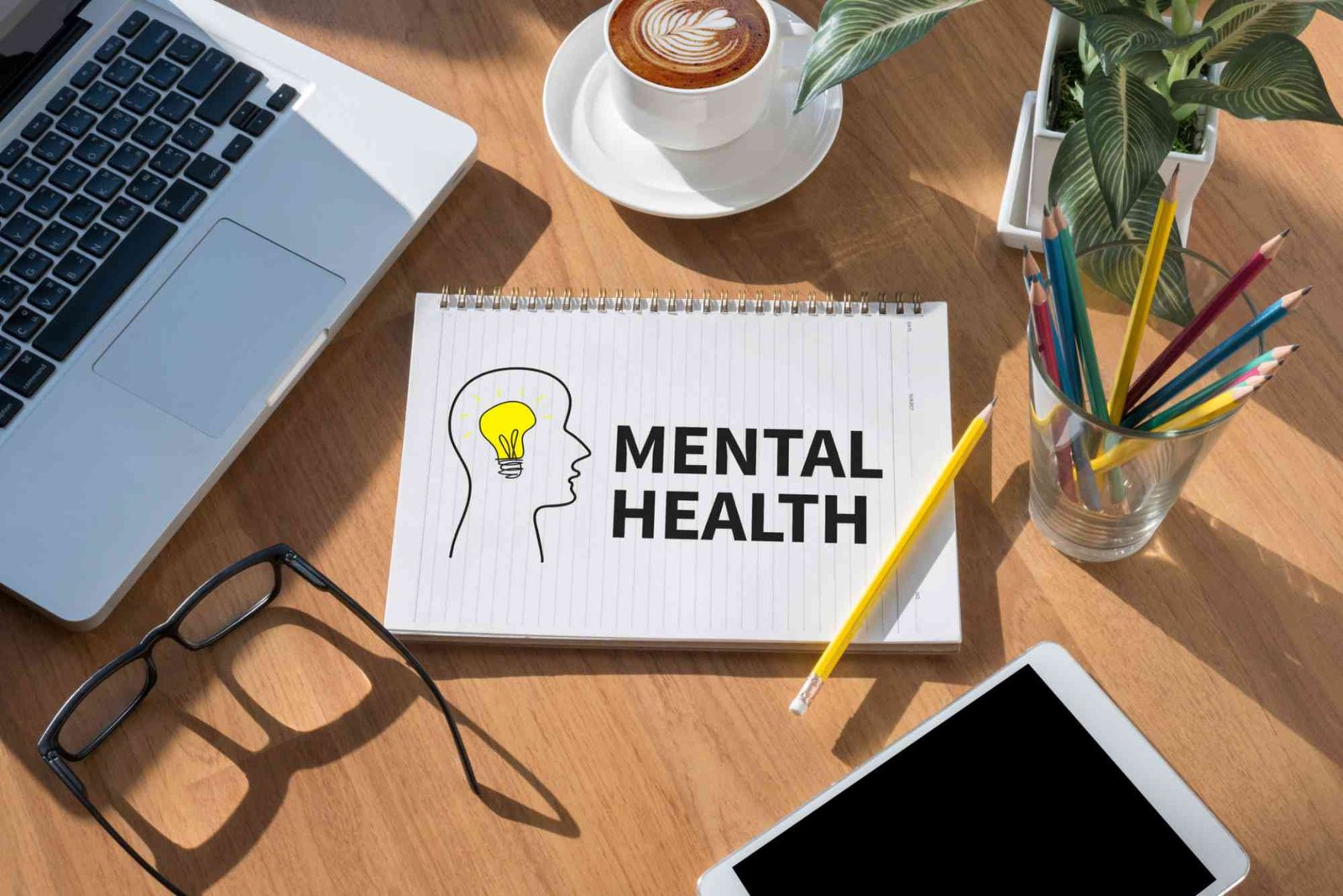Introduction
Exercise is not just about building muscles or losing weight—it’s a powerful tool for improving mental health and emotional well-being. In today’s fast-paced world, stress, anxiety, and depression have become common issues, affecting millions globally. Fortunately, one of the most effective ways to combat these challenges doesn’t come from a pill or a therapy session—it comes from physical activity. Regular exercise can transform the way we think, feel, and live, helping us maintain a balanced and positive outlook on life.
The Mind-Body Connection: Why Exercise Impacts Mental Health
Our mental and physical health are deeply interconnected. When we engage in physical activity, our body releases endorphins—natural mood enhancers often referred to as “feel-good” hormones. These chemicals reduce the perception of pain and trigger positive feelings in the body. Exercise also increases the production of serotonin, dopamine, and norepinephrine—neurotransmitters that help regulate mood and reduce feelings of depression and anxiety.
How Exercise Changes Brain Function
Exercise promotes neuroplasticity, which is the brain’s ability to form new neural connections. This helps improve cognitive function, focus, and memory. Studies show that even moderate exercise can increase the size of the hippocampus, the area of the brain responsible for memory and learning. Regular movement enhances oxygen and nutrient delivery to brain cells, protecting them against degeneration and premature aging.
Exercise and Hormonal Balance
When you work out, your body regulates cortisol, the primary stress hormone. High cortisol levels can lead to fatigue, irritability, and anxiety. Exercise naturally lowers cortisol levels, allowing your mind to relax and function more clearly. Additionally, physical activity improves sleep quality—a key factor in maintaining good mental health.
Emotional Benefits of Regular Exercise
Exercise has the unique ability to provide immediate emotional relief and long-term mental benefits. Whether it’s a brisk walk, yoga session, or weight training, consistent movement improves confidence, motivation, and resilience.
Reducing Stress and Anxiety
One of the most significant ways exercise improves mental health is by reducing stress and anxiety. Physical activity increases the production of endorphins, which act as natural stress relievers. It also encourages mindfulness by redirecting your focus from worries to your body’s movements and breathing. This meditative effect helps calm the mind and reduce anxious thoughts.
Combating Depression
Depression is often linked to low levels of serotonin and dopamine. Exercise boosts the production of these neurotransmitters, providing an antidepressant-like effect. Many mental health professionals recommend physical activity as part of depression treatment because it encourages positive behavior changes and a sense of accomplishment.
Building Self-Esteem and Confidence
Setting and achieving fitness goals, no matter how small, can significantly enhance self-esteem. Exercise helps individuals feel stronger, healthier, and more in control of their lives. The physical changes from consistent workouts—such as better posture, improved energy, and body tone—also contribute to a more positive self-image.
Cognitive and Psychological Advantages
Exercise doesn’t just make you happier—it makes you smarter. The psychological and cognitive benefits of regular activity are profound and supported by scientific evidence.
Improved Memory and Focus
Exercise increases blood flow to the brain, enhancing concentration and memory. Aerobic exercises like running or swimming can help sharpen thinking and decision-making skills. This is particularly beneficial for students, professionals, and older adults looking to maintain mental sharpness.
Better Sleep Quality
Poor sleep is often linked to mental health issues like anxiety and depression. Exercise promotes deeper and more restorative sleep by helping regulate the body’s circadian rhythm. Even moderate activity, such as walking for 30 minutes daily, can improve sleep patterns and overall rest quality.
Boosting Creativity and Productivity
A simple workout session can spark creativity and enhance problem-solving skills. Exercise triggers the release of growth factors that help the brain form new neural pathways. That’s why many people experience a surge of creative ideas after a workout. Incorporating short activity breaks during work can significantly improve focus and efficiency.
How Different Types of Exercise Affect Mental Health
Not all workouts deliver the same mental health benefits, but every form of physical activity contributes positively in its own way.
Aerobic Exercise
Activities like running, cycling, and dancing are excellent for releasing endorphins and improving cardiovascular health. These exercises are particularly effective in reducing anxiety and depression symptoms.
Strength Training
Weightlifting or resistance training builds not only muscle but also confidence. It enhances discipline, focus, and self-control—qualities that translate well into everyday life. Strength training has been shown to reduce symptoms of anxiety and improve self-worth.
Yoga and Mindful Movement
Yoga combines physical movement with mindfulness and breathing techniques, promoting relaxation and emotional balance. It reduces stress, enhances self-awareness, and encourages a deeper connection between the mind and body.
Outdoor Activities
Spending time outdoors while exercising provides additional benefits. Sunlight exposure boosts vitamin D levels, which helps regulate mood and energy. Activities such as hiking or jogging in nature also reduce feelings of loneliness and mental fatigue.
Practical Tips to Make Exercise Part of Your Mental Health Routine
Starting an exercise routine doesn’t mean spending hours at the gym. The key is consistency and finding activities you enjoy.
Start Small and Stay Consistent
Begin with short, achievable sessions. Even 10–15 minutes of daily exercise can make a difference. Gradually increase the duration and intensity as your stamina improves.
Choose Activities You Love
When you enjoy what you’re doing, you’re more likely to stick with it. Whether it’s dancing, swimming, or walking your dog, pick something that makes you happy.
Mix It Up
Combining different types of workouts prevents boredom and keeps both your body and mind engaged. Alternate between cardio, strength, and flexibility exercises throughout the week.
Set Realistic Goals
Setting attainable goals creates motivation and a sense of progress. Celebrate small victories to maintain momentum and boost confidence.
Make It Social
Exercising with friends, joining a fitness class, or participating in team sports adds a social element that further enhances mental well-being. Human connection and shared goals strengthen emotional resilience.
The Long-Term Mental Health Benefits of Exercise
Consistent physical activity not only improves mood immediately but also offers lasting protection against mental health issues. People who maintain an active lifestyle experience lower rates of depression, anxiety, and cognitive decline. Exercise also enhances emotional stability, helping individuals cope better with life’s challenges.
Over time, exercise becomes a natural stress management tool, improving your overall outlook on life. The discipline and structure developed through regular activity can influence other healthy behaviors, such as balanced eating and better sleep habits.
Move Your Body, Heal Your Mind
Understanding how exercise improves mental health empowers you to take charge of your well-being. From reducing anxiety and depression to enhancing focus and confidence, physical activity is one of the most effective, natural ways to achieve mental balance. Whether you’re walking in the park, lifting weights, or practicing yoga, every movement counts toward a healthier, happier you.
If you’re ready to start your journey toward mental and physical wellness, explore more at How Does Exercise Improve Mental Health. For inspiration and motivation, check out this Related Sports & Fitness article. Want to dive deeper into the science behind exercise and health? Learn more about how the human body and mind thrive through movement.
FAQs
1. How long does it take for exercise to improve mental health?
Some benefits, such as reduced stress and improved mood, can be felt after a single workout. For long-term changes like better sleep and emotional balance, consistent exercise over several weeks is key.
2. What type of exercise is best for mental health?
A combination of aerobic activities, strength training, and mindfulness practices like yoga provides the best mental health benefits.
3. Can exercise replace medication for depression or anxiety?
Exercise can complement treatment, but it should not replace prescribed medication or therapy. Always consult a healthcare professional before making any changes to your treatment plan.
4. How does exercise help with stress management?
Exercise reduces cortisol levels, increases endorphin production, and helps focus the mind away from daily worries, promoting relaxation.
5. How often should I exercise for mental health benefits?
Aim for at least 150 minutes of moderate-intensity exercise or 75 minutes of vigorous activity per week, combined with daily movement.







